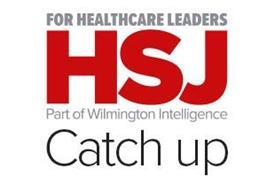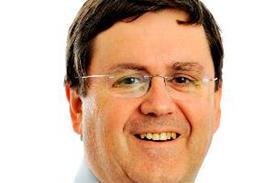- Change outlined in letters to providers from NHSI
- HSJ has previously highlighted examples of trusts meeting financial targets by completing large land sales
- Link between A&E performance and the receipt of non-recurrent sustainability funding also scrapped
- Every provider issued rebased control total
NHS trusts will no longer be able to meet their financial targets through land sales, after regulators scrapped a controversial accounting measure which has had a distortive impact on provider finances.
The change is outlined in letters to providers from NHS Improvement, seen by HSJ, which said: “The treatment of gains on disposal of assets has been amended in 2019-20. Providers will not be able to use any of these gains to deliver their original 2019-20 control total.”
Any gains will instead result in a revised control total, which should disincentivise the accounting measure.
HSJ has previously highlighted several examples of trusts meeting or exceeding their financial targets by completing large land sales, which has then triggered significant incentive payments.
This has caused concern because the asset sales have not improved the underlying financial position, and the accounting treatment effectively results in national capital funds being diverted into revenue budgets. In 2017-18, £206m of land sale proceeds boosted the national revenue account, compared to £131m boosting capital budgets.
The incentive payments have also had a hugely distortive impact on funding distribution and often favoured wealthier trusts.
Meanwhile, the letters said the link between accident and emergency performance and the receipt of non-recurrent sustainability funding has also been scrapped.
Under the current regime, 30 per cent of the “provider sustainability fund” is only paid if trusts meet their A&E performance trajectories. But the letters said the reduced PSF in 2019-20 (worth £1.25bn) will be linked only to control totals, and “there will be no performance, or any other requirements linked to the ability to earn PSF in year”.
The letters, which were sent by the regulator yesterday and follow confirmation of an additional £4bn in real terms funding growth for the NHS, were accompanied by a trust-specific appendix which outlined the organisation’s surplus or deficit control total in 2019-20. The control totals have been based on trusts’ outturn in 2017-18, and appear to take account of any large non-recurrent benefits that boosted performance in that year.
So if a trust’s position was boosted significantly in 2017-18 by a land sale, for example, this has been excluded when calculating the rebased control total.
The document added: “In the context of the planning guidance and the details contained in Appendix 1 of this letter, your board should consider signing up to your 2019-20 control total and confirm acceptance in the financial planning template.”
Trusts have then been given prospective allocations from the PSF, as well as the national pot created by the removal of the marginal rate emergency tariff (worth around £340m in 2017-18), and allocations from the new £1bn financial recovery fund (only trusts in deficit).
The new control totals also take account of additional efficiencies worth 0.5 per cent for trusts in deficit, and an adjustment to clinical negligence payments.
David Williams, finance policy advisor at NHS Providers, said: “It is good that the perverse incentive to sell assets to hit control totals has been removed. However, the important thing is for trusts to be given control totals that they can achieve without being forced to resort to short-term measures like land sales. We hope the 2019-20 financial regime will enable this.
“We understand the rebasing has taken out the impact of big non-recurrent items like land sales in 2017-18, which is good. But where trusts have done lots of little non-recurrent items in 2017-18, this hasn’t been taken account of. So there could be some issues there.
“Removing the link between A&E performance and PSF makes things simpler, and means trusts aren’t penalised for something that isn’t really in their control.
“There is no risk reserve next year so the stakes will be higher for control totals to be accepted and met. The financial levers to get trusts to sign up to them have also increased significantly.”
Source
NHS Improvement letter
Source Date
17 January 2019


























7 Readers' comments